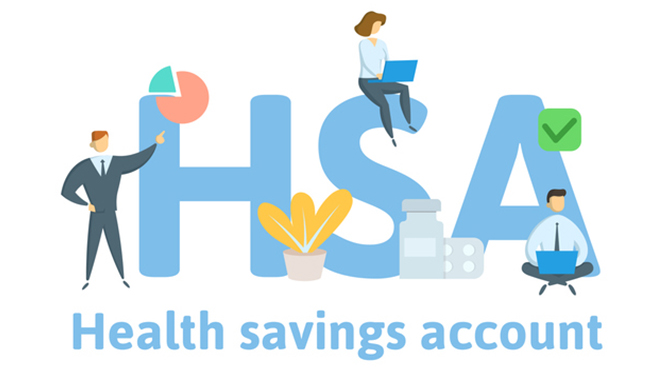How Do I Plan for Medicaid?
May 29, 2024
 The best time to plan for the possibility of nursing home care is when you’re still healthy. By doing so, you may be able to pay for your long-term care and preserve assets for your loved ones. How? Through Medicaid planning.
The best time to plan for the possibility of nursing home care is when you’re still healthy. By doing so, you may be able to pay for your long-term care and preserve assets for your loved ones. How? Through Medicaid planning.Tags: charlotte NC, Health Care Needs, Health Care Savings, Medicare
Medicare Costs Are Increasing in 2024
Nov 13, 2023

Premiums, deductibles, and coinsurance amounts for Original Medicare generally change every year. Here’s a look at some of the costs that will apply in 2024.
Tags: financial advisor charlotte nc, Financial Planning, Health Care Needs, Health Care Savings
Healthcare in Retirement?
Oct 25, 2023
Tags: a, Health Care Needs
October is Breast Cancer Awareness Month
Oct 4, 2023

October brings to mind the beauty of the leaves changing colors and a time to enjoy the colder weather. But October also holds another meaning for millions of people: it’s Breast Cancer Awareness Month. (more…)
Tags: Current Events, Health Care Needs
Cost of Medical Care
Aug 23, 2023

When uninsured people end up in the hospital, “sticker shock” can follow. Just a quick look at the current prices for medical care procedures can be sobering.
How much does a CT scan cost? Between $250 to $1,500, depending on where it is performed. Need a stent in your heart? The average cost of that delicate procedure is now close to $20,000. How about a knee replacement? That surgery may run anywhere from $15,000 to $35,000.1,2 (more…)
Tags: Health Care Needs, Health Care Savings, Personal Finance
Healthcare Costs are Cutting into Retirement Preparations
Mar 22, 2023

You may have seen this statistic before or one resembling it: the average 65-year-old retiring couple can now expect to pay more than $250,000 in healthcare costs during the rest of their lives.
In fact, Fidelity now projects this cost at $285,000. The effort to prepare for these potential expenses is changing the big picture of retirement planning.
Tags: Employee Benefit Planning, Health Care Needs, Health Care Savings, retirement, Retirement Planning
What is Critical Illness Insurance
Sep 7, 2022

Ever hear of critical illness insurance? This isn’t standard-issue disability insurance, but a cousin of sorts. With people living longer, it is a risk management option entering more people’s lives. (more…)
Tags: Health Care Needs, Insurance, Long-Term Care Planning
Understanding Extended Care
Mar 23, 2022

Addressing the potential threat of extended care expenses may be one of the biggest financial challenges for individuals who are developing a retirement strategy.
The Administration for Community Living estimates that by 2060, 94.7 million Americans will be aged 65 and older. Of those, it’s estimated that someone who just turned 65 has an almost 70% chance of needing some type of extended care.1,2 (more…)
Tags: Health Care Needs, Health Care Savings, Long-Term Care Planning, Medicare
The Under Utilized Benefits of a Health Savings Account
Sep 22, 2021

Healthcare can be one of the priciest yet essential parts of life’s journey. And yet, many struggle to utilize the financial tools that may help. Take Health Saving Account (HSAs), for example. (more…)
Tags: financial advisor charlotte nc, Health Care Needs, Health Care Savings
Ways to Fund A Special Needs Trust
Jul 7, 2021

If you have a child with special needs, a special needs trust may be a financial priority. There are many crucial goods and services that Medicaid and Supplemental Security Income might not pay for, and a special needs trust may be used to address those financial challenges. Most importantly, a special needs trust may help provide for your disabled child in case you’re no longer able to care for them. (more…)
Tags: financial advisor charlotte nc, Health Care Needs, Health Care Savings, Insurance, Investing, Investment Planning, Legacy, Long-Term Care Planning, Wealth Building
More Insights
Key Takeaways Volatility came back with a vengeance this week as selling pressure in the mega cap space dragged down the broader market. Counterbalancing weakness in these heavyweight names poses a challenge for the rest of the market. Overbought conditions can also be blamed for the recent weakness. The S&P 500 reached a 14.9% premium … Continue reading “Market Update – Assessing the Technical Damange”
Life insurance can be an excellent tool for charitable giving. Not only does life insurance allow you to make a substantial gift to charity at relatively little cost to you, but you may also benefit from tax rules that apply to gifts of life insurance.
When you think of Social Security, you probably think of retirement. However, Social Security can also provide much-needed income to your family members when you die, making their financial lives easier. Your family members may be eligible to receive survivor benefits if you worked, paid Social Security taxes, and earned enough work credits. The number … Continue reading “Social Security Survivor Benefits”
Information vs. instinct. When it comes to investment choices, many people believe they have a “knack” for choosing good investments. But what exactly is that “knack” based on? The fact is, the choices we make with our assets can be strongly influenced by factors, many of them emotional, that we may not even be aware … Continue reading “Making Investment Choices”
As a business owner, you should carefully consider the advantages of establishing an employer-sponsored retirement plan. Generally, you’re allowed certain tax benefits for establishing an employer-sponsored retirement plan, including a tax credit for establishing the plan and a deduction for contributions you make. In return, however, you’re required to include certain employees in the plan, … Continue reading “Retirement Plans for Small Businesses”
Services
Epic Capital provides the following comprehensive financial planning and investment management services: Learn More >

 At any age, health care is a priority. When you retire, however, you will probably focus more on health care than ever before. Staying healthy is your goal, and this can mean more visits to the doctor for preventive tests and routine checkups. There’s also a chance that your health will decline as you grow older, increasing your need for costly prescription drugs or medical treatments. That’s why having health insurance is extremely important.
At any age, health care is a priority. When you retire, however, you will probably focus more on health care than ever before. Staying healthy is your goal, and this can mean more visits to the doctor for preventive tests and routine checkups. There’s also a chance that your health will decline as you grow older, increasing your need for costly prescription drugs or medical treatments. That’s why having health insurance is extremely important. Top of Page
Top of Page











